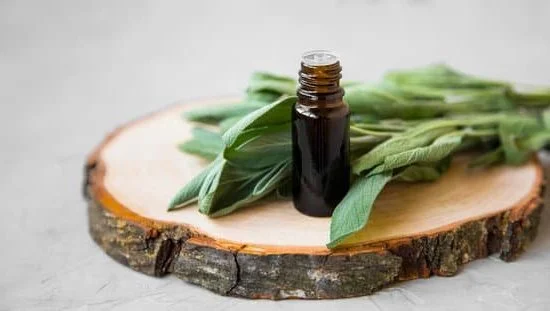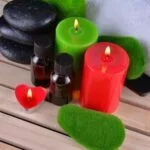Are you wondering, “Can you use reed diffuser oil in aromatherapy diffuser?” Aromatherapy has been practiced for centuries to promote relaxation, improve mood, and enhance overall well-being. One popular method of utilizing the benefits of aromatherapy is through the use of diffusers. These devices work by dispersing essential oils into the air, allowing for easy inhalation and absorption of their therapeutic properties.
Reed diffuser oil is a liquid substance specifically designed to be used with reed diffusers, which do not require heat or electricity to disperse the scent. Unlike essential oils, reed diffuser oils are pre-mixed with carrier oils or alcohol, making them easier to use and less concentrated than pure essential oils. They come in a variety of scents and are often used for their long-lasting fragrance and decorative purposes.
When it comes to using reed diffuser oil in an aromatherapy diffuser, there are some potential benefits as well as drawbacks to consider. It’s important to understand how these two types of oils differ and whether they can be safely used interchangeably in aromatherapy diffusers. In this article, we will explore the factors that can help you make an informed decision about using reed diffuser oil in your aromatherapy diffuser for a more personalized experience.
Understanding Reed Diffuser Oil
Reed diffuser oil, also known as reed diffuser refill oil, is a type of scented oil specifically designed for use in reed diffusers. Unlike essential oils, which are highly concentrated and often require dilution before use in a diffuser, reed diffuser oil is ready to use straight from the bottle. This makes it a convenient and easy option for enhancing the ambiance of a space with pleasant fragrances.
There are a variety of scent options available in reed diffuser oils, ranging from floral and citrusy to woody and musky, catering to different preferences and moods. Some popular scents you can find in reed diffuser oils include lavender, eucalyptus, vanilla, sandalwood, and rose.
Using reed diffuser oil in an aromatherapy diffuser offers a low-maintenance way to enjoy continuous fragrance diffusion without needing to constantly monitor the level of the oil or change out the reeds. This makes it a great option for those who want to effortlessly create a soothing atmosphere at home or in the workplace.
Additionally, many reed diffuser oils are formulated with alcohol-based carriers that can help provide long-lasting scent diffusion without altering the properties of the oil itself.
While reed diffuser oils may not have the same therapeutic benefits as pure essential oils commonly used in aromatherapy, they can still contribute to creating an inviting and relaxing environment. Their subtle yet constant diffusion can help set a calming ambiance that promotes wellbeing and relaxation throughout the day.
Moreover,replacing traditional essential oils with these specially formulated reed diffuser oils saves you from frequently refilling or changing out your aromatherapy diffusers which can be very convenient yet cost-effective option for achieving aromatic benefits.
Aromatherapy Diffusers
Each type of aromatherapy diffuser offers a different way to enjoy the benefits of essential oils. For example, ultrasonic diffusers are often used for their ability to humidify the air and create a soothing atmosphere with their soft ambient lighting.
Nebulizing diffusers are known for their powerful scent dispersal and are often used in larger spaces or for therapeutic purposes. Heat diffusers use heat to evaporate essential oils into the air, while evaporative diffusers use a fan to blow air through a pad soaked in essential oils.
Regardless of the type of aromatherapy diffuser you choose, they can all help create a calming environment that promotes overall well-being. Whether you’re looking to relax after a long day or improve your focus during work or study sessions, an aromatherapy diffuser can be a valuable tool in your wellness arsenal.
When using reed diffuser oil in an aromatherapy diffuser, it’s important to consider how the specific type of oil will interact with your chosen type of diffuser. While some diffusers may work well with reed diffuser oil, others may not be compatible due to differences in viscosity and composition.
Can You Use Reed Diffuser Oil in Aromatherapy Diffuser?
Reed diffuser oil is a type of scented oil specifically designed for use in reed diffusers, which typically consist of rattan reeds placed in a decorative bottle of scented oil. These reeds soak up the scented oil and disperse the fragrance into the air, creating a subtle and long-lasting aroma in a room. Reed diffuser oil is not the same as essential oils, as it often contains other ingredients and is specifically formulated for use with reed diffusers.
Benefits and Drawbacks
Using reed diffuser oil in an aromatherapy diffuser
Reed diffuser oils may contain synthetic fragrances or other additives that could have different effects compared to pure essential oils used in aromatherapy. Additionally, using reed diffuser oil in an aromatherapy diffuser may not be as effective as using pure essential oils, which are specifically extracted from plants for therapeutic purposes.
Guidelines for Use
If you choose to use reed diffuser oil in an aromatherapy diffuser, it’s important to proceed with caution. Consider diluting the reed diffuser oil with water to reduce the potency before adding it to your aromatherapy diffuser. Be mindful of any potential allergic reactions or sensitivities to the ingredients in the reed diffuser oil. It’s also advisable to thoroughly clean your aromatherapy diffuser after each use of reed diffuser oil to prevent any residue from building up.
Considering Alternatives
While using reed diffuser oil in an aromatherapy diffuser is an option, there are alternative ways to enjoy aromatic benefits without exposing yourself to potentially harmful substances present in some commercial fragrance oils. Essential oils derived from plants offer natural scents and therapeutic properties that can be safely used in aromatherapy diffusers. Water-based or heat-activated scent options are also available and offer additional choices for those seeking a safer alternative to traditional scented oils.
Safety Precautions and Considerations
When it comes to using reed diffuser oil in an aromatherapy diffuser, there are several important safety precautions and considerations to keep in mind. First and foremost, it’s crucial to ensure that the reed diffuser oil is specifically labeled as safe for use in aromatherapy diffusers. Not all oils are suitable for dispersal through a diffuser, so checking the label and product information is essential.
It’s also important to remember that reed diffuser oil tends to have a stronger concentration than traditional essential oils, so it’s advisable to use a minimal amount when using it in an aromatherapy diffuser. Start with just a few drops and adjust as needed based on the size of the room and personal preference. Using too much reed diffuser oil can overwhelm the senses and may not provide the intended therapeutic benefits.
In addition, always read and follow the manufacturer’s instructions for both the reed diffuser oil and the aromatherapy diffuser. Each device may have specific guidelines for use that should be adhered to in order to ensure safe and effective operation. Lastly, keep in mind that some people may have sensitivities or allergies to certain scents, so be mindful of others when using reed diffuser oil in shared spaces.
| Safety Precautions | Considerations |
|---|---|
| Check label for safe use | Use minimal amount |
| Follow manufacturer’s instructions | Be mindful of others’ sensitivities |
Alternatives to Reed Diffuser Oil in Aromatherapy Diffusers
Reed diffuser oil is a popular choice for infusing homes with delightful scents, but can you use reed diffuser oil in an aromatherapy diffuser? Before we delve into the details, let’s first understand what reed diffuser oil is.
Reed diffuser oil is a special type of oil designed to be used specifically in reed diffusers, which are decorative containers with narrow openings filled with scented oils and reeds that draw the fragrance up and disperse it into the air. This type of oil is typically not the same as essential oils commonly used in aromatherapy.
When it comes to using reed diffuser oil in an aromatherapy diffuser, there are some considerations to keep in mind. Aromatherapy diffusers are designed to work with essential oils or water-based diffuser oils, which are specifically formulated for use in such devices.
While it may be tempting to try using reed diffuser oil in an aromatherapy diffuser due to its pleasant scent options, doing so may not be advisable. Reed diffuser oils often contain ingredients that may not be suitable for vaporizing and inhaling, which can potentially pose health risks when used in an aromatherapy diffuser.
There are safe and effective alternatives to reed diffuser oil for use in aromatherapy diffusers. Essential oils, derived from plants and flowers, are a popular choice for their natural properties and therapeutic benefits.
Water-based or carrier oils can also be used as a substitute for reed diffuser oil in aromatherapy diffusers and offer a wider range of options for blending different scents. It’s important to always choose high-quality oils specifically intended for use in aromatherapy diffusers to ensure safety and maximize the benefits of your aromatherapy experience.
Tips for Enhancing Aromatherapy With Diffusers
When it comes to enhancing the benefits of aromatherapy using diffusers, there are several tips and strategies that can help maximize the therapeutic effects of essential oils or reed diffuser oil. Whether you are using an ultrasonic diffuser, nebulizing diffuser, or reed diffuser, these tips can elevate your aromatherapy experience and create a more relaxing and soothing atmosphere in your home or workspace.
Choosing the Right Essential Oils
Selecting the right essential oils is crucial for creating the desired ambiance and promoting specific health benefits. For example, lavender oil is well-known for its calming properties, while eucalyptus oil can help clear nasal passages and promote respiratory health.
When using reed diffuser oil in an aromatherapy diffuser, consider the scent options available and ensure that they align with your intended purpose for aromatherapy. Additionally, consider blending different essential oils to create custom scent combinations that cater to your unique needs.
Proper Placement of the Diffuser
Where you place your aromatherapy diffuser can significantly impact its effectiveness. Placing it in a central location in the room can help disperse the scent more evenly, allowing for better diffusion throughout the space. Additionally, placing the diffuser at a higher level (such as on a shelf or countertop) can help to distribute the scent more effectively than if it were placed directly on the floor.
Adjusting Diffusion Settings
Depending on the size of the room and personal preferences, adjusting the settings on your aromatherapy diffuser can enhance its performance. Some diffusers offer options for adjusting mist intensity or timer settings, allowing you to customize how much scent is released into the air and how long the diffuser operates. Experimenting with these settings can help you find the optimal balance for creating a soothing environment tailored to your needs.
By implementing these tips for enhancing aromatherapy with diffusers, individuals
Conclusion
In conclusion, aromatherapy diffusers are a great way to experience the benefits of essential oils and create a relaxing atmosphere in your home or workspace. While reed diffuser oil can provide a pleasant scent and ambiance, it is important to consider the potential drawbacks and safety precautions when using it in an aromatherapy diffuser.
It is important to note that reed diffuser oil is not designed for use in traditional aromatherapy diffusers, as it does not always disperse effectively and may clog the device over time.
When considering alternative options for aromatherapy diffusers, essential oils or water-based diffuser oils are safer and more suitable for use. These types of oils are specifically formulated for dispersion in aromatherapy diffusers and offer a wide range of therapeutic benefits. Additionally, by following proper guidelines and considering safety precautions, you can enhance your aromatherapy experience while ensuring the longevity and functionality of your diffuser.
Frequently Asked Questions
Can You Use Reed Diffuser Oil in an Essential Oil Diffuser?
Reed diffuser oil typically contains a higher concentration of fragrance oils and is specifically formulated for reed diffusers, not essential oil diffusers. Using it in an essential oil diffuser may clog the unit and affect its performance.
Can You Use Other Oils in Aromatherapy Diffuser?
In an aromatherapy diffuser, you can use other oils such as lavender, peppermint, eucalyptus, and tea tree oil. These oils are known for their therapeutic properties and can be safely used in aromatherapy diffusers to create a soothing atmosphere.
What Is the Difference Between Diffuser Oil and Reed Oil?
Diffuser oil is specifically formulated to be dispersed through an electronic or candle-powered diffuser, while reed oil is designed to be used with reed diffusers, where the fragrance is absorbed through the reeds and then released into the air. The main difference lies in their intended method of dispersion.

Are you looking for a natural way to improve your health and wellbeing?
If so, aromatherapy may be the answer for you.





